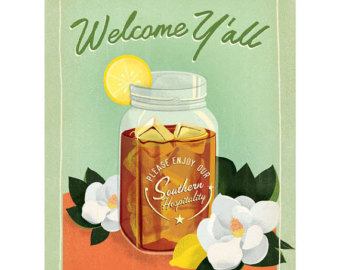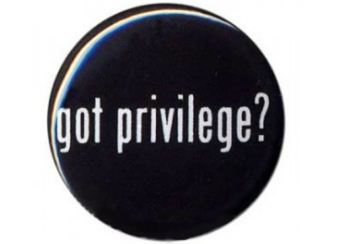… (read part 1 if you haven’t yet) And, in the continued research, I discovered that there are dozens of various statues and monuments to the man, especially in South Carolina. Schools, streets, and a city are named for him. Because of his military prowess, a ship was named after him in WWII.
I want to give an insider explanation about one aspect of this argument – Civil War Monuments are not there to celebrate American History. They are there to celebrate Confederate History and Confederate leaders – notice that there are very few Confederate leader monuments north of the Mason-Dixon line.
At this point, I am still not offering my opinion as to the rightness or wrongness of these existing, but I wanted to clarify that the argument that this is about “American” history is not necessarily true.
The Civil War was certainly part of our history, but these monuments are there to celebrate the Confederacy and her leadership, not the US and hers – and typically in competition with the other.
These were people who declared themselves independent from their federal government and tried to establish what they thought was a more perfect union that the Union at that time. They fought for State’s Rights; sadly, the main State’s Right they were fighting to defend was racial slavery – The “right” (shudder to use that word here) to own another human being as property. How could any reasoning human being have ever thought that was ok? I don’t know…
Side note – I do think that the nearest equivalent we have today is abortion. For mostly financial reasons, we determine that one human being is not worthy to have life, liberty, etc. It is an industry built around something morally wicked that we are not willing to expel because of what it would cost us individually and culturally…
But most cultures in history have thought slavery (and killing children) was acceptable at some point. We aren’t talking about the most common biblical kind of slavery – what we would call indentured servitude – largely the choice of the servant.
This is what is known as Southern Antebellum (meaning “before the war”) Slavery, and it was almost exclusively racial. The culture of the South before the Civil War was almost entirely dependent on slavery.
Wade Hampton, for example, found that it was nearly impossible to turn a profit on his farms without free labor.
For those who do not know first hand, “Southern,” is a thing, and it’s not all or even primarily about racism. “Southern” exists independent of racism.
Southern heritage is a real thing… and, like every other aspect of history, not an all good nor all bad thing. There is Southern cuisine, southern style, and southern art. There are certainly Southern courtesies and ethics. As an insider, I will tell you that the role of racism in “southern” anything has lost a lot of ground in the last few generations (and I assume consistently since the evil of Antebellum Racial Slavery was ended).
Even in the deep South, in a white-only situation, I rarely hear any kind of racially offensive humor or openly racist remarks… and I would admit it if the opposite were true – because it was when I was younger.
As a teenager, racially charged jokes were still common when there were only white kids around. Few of those kids probably had any serious racist sentiment in their hearts, but they thought they could get a laugh with a joke about a different race. However, even that has become very rare. I honestly cannot remember the last time I heard someone tell such a joke or use a slang term for any other race than Caucasians, not counting media.
How awful, ironic and hypocritical that Southern Hospitality is a thing. It really still is. Driving across the country, I can begin to feel the sense of being welcomed and wanted – and engaged with by everyone from the gas station attendant to anyone you ask for help… I love that aspect of the South. I think hospitality is a pure gold and is a beautiful thing!
It really still is. Driving across the country, I can begin to feel the sense of being welcomed and wanted – and engaged with by everyone from the gas station attendant to anyone you ask for help… I love that aspect of the South. I think hospitality is a pure gold and is a beautiful thing!
But, what if my African American friends don’t experience that? That is a hateful tragedy. I am realizing now that some aspects of Southern Hospitality haven’t been for everyone.
I hate that.
Do you feel unwanted and unwelcome? I pray that is by a tiny minority of people – I would pray that anyone of any race or color attending my church would experience extreme levels of hospitality.
The highest level of injustice would be that I experience that Southern hospitality every bit as much from black people as white people!
I know there are plenty of people who have every reason to expect a sense of hatred and dismissal when they engage with white people, though. I have some friends good enough to tell me about their experiences with openly, unashamed racist people.
Apparently essentially every African American has experiences of this kind. It so infuriates me that it helps me understand the levels of anger felt by those who experience it… God knows racists of this breed are real and truly intentional racist behavior is a reality still… but I have never it seen as an adult in front of me.
I have never heard anyone brag about committing such an act. But they certainly happen. They should never happen. That level of hatred and dismissal of another human is un-defendable.
What I do still hear regularly is “unintentional” racism. Things are said or done that reveal an ethno-centric tendency. It is HARD for us to see outside of our own instinctive ways of understanding things. (People ask all kinds of ridiculous questions about our adopted children – they don’t intend to be offensive , and they may even intend to be encouraging or seeking understanding).

Example – a common response I am hearing from those around me about re-naming our local “Robert E Lee” High School is “It doesn’t matter to me what we call it – it just isn’t a big deal…”
Notice that the person is making the effort to be conciliatory, but are still ethno-centric. Their attitude may seem right and might be at the personal level, but sounds like it implies that the issue can be ignored or dismissed as “not a big deal.”
Perhaps to them, at the personal level, it isn’t a big deal, but it may be a very big deal to someone whose history doesn’t include a “grand Civil War General”, but a slave of that General.
They may not be at all dismissing the argument, but if an issue is a big deal to you, then it can easily feel dismissive. See how that is unintentional ethno-centism?
I hope everyone can be patient and graceful with “well-meaning” human frailties in which even when the spirit is willing, the habit, ignorance, blindness, flesh is weak.
So, with all of that in mind… we are to the actual topic, I think.
Do we rename our schools? Do we take down the monuments? Change the name of streets?
I think there was a day in which that answer was “no”. We were a literate enough and complicated enough culture to have the conversation in a healthy way and less likely to unnecessarily offend.
We (I admit that I am not sure who “we” is in this sentence. It seems that writings from the past and debates, like the debates about the Declaring of Independence or even slavery, indicate that people used to be able to have deep, complex, respectful conversations and even disagreements about things. But, were those all educated, well-off white  people I am referring to? Did things like slavery give them the hours to do that instead of work? Even this is complex) could talk about the way people are complex. This isn’t new. One of the things I love about the Bible, for example, is that almost anyone who gets any press at all has at least a part of their lives revealed as dark, sinful, and reprehensible!
people I am referring to? Did things like slavery give them the hours to do that instead of work? Even this is complex) could talk about the way people are complex. This isn’t new. One of the things I love about the Bible, for example, is that almost anyone who gets any press at all has at least a part of their lives revealed as dark, sinful, and reprehensible!
Abraham’s family all had a serious issue with dishonesty. They had a nasty tendency to lie their way out of problems, or at least to attempt to do so.
Many of the patriarchs were idol worshipers for at least some part of their lives; they could be unreasonable, easily misdirected and worse!
Of course, famously, King David managed to break pretty much all of the Ten Commandments in just a few months.
In the New Testament, the disciples were clueless at the best of times and deniers at the worst.
It is part of how we can know these were real people who behaved like real people and whose lives were complex – like real people.
People are complex? Read more in part 3
I think we have found different research. From what I have read the South wanted separation from the North because essentially the federal government was beginning to treat the South in much the same way that Britain treated the colonies. Though slavery was an issue it was not the main issue but the one that was popularized by the opposition. At the peak of slavery only 1.4% of the population had slaves and of that number 3000 were black slave owners that owned black slaves. As for it being racial an argument might also be given for cultural and ethnic slavery as there were at one time 52,000 Irish slaves in this country. The Irish were treated the worst. As to how slaves got here we owe that mainly to the same people that gave the U.S. Marines the nick name “leathernecks”, pirate slavers that used their cutlasses to behead the mean of the ships they fought during the fighting. These were made up mostly of islamists that raided Africa and other regions for slaves as well as buying slaves that were being sold by their own people. The slave trade was not then nor is it now confined to any one race as the slavers raided indiscriminately and took white, brown, yellow and black skinned people to sell in the marketplaces that catered to the slave trade. This practice is still alive and well in other countries and is still conducted by the same type of islamists. It is also still alive and well in the U.S. but is posted in the media as abductions or disappearances rather than calling it what it is. At present the most popular types for abduction are young white girls from ages 12 t0 15.One of the hot spots for taking young girls is Dallas, Texas.
I agree with much of what you say – as that major point I had tried to make in the past – things are complex. People are complex. History is complex. if you can summarize the motivations for something like a civil war in a single sentence then you aren’t doing a good job. However, there is plenty of evidence that the catalyst for the succession was the issue of slavery. Was it the only factor? Of course not. But in this case, no other issue would have led to bloodshed, probably. There are certainly factors that are similar to the War for Independence… and the issue of modern slavery is an interesting point to make… and a painful one to think about.
Pingback: Confederate Monuments Controversy – Part I | Chris Legg, LPC